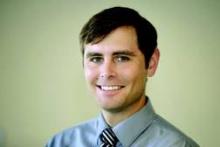Editors’ Note: Welcome to Residents’ Corner, an occasional column that will feature residents’ perceptions of the future of psychiatry; program matching issues; training experiences, positive and negative; funding and debt issues; career options post residency; and other issues of particular interest to residents. Residents interested in contributing should send submissions to cpnews@frontlinemed.com.com.
Along the path to becoming a psychiatrist, residency interview season was the first time I felt recruited. After many years of seeking acceptance – first to a top-tier university and then to medical school – it was refreshing to visit programs hoping for me to accept them. My friend applying to orthopaedic surgery, however, did not share this experience. He sweated every moment until Match Day. I would like to say I was more confident because my application was stronger. It wasn’t. Psychiatry is just much less popular.
In 2014, U.S. seniors filled only 52% of psychiatry residency positions, and 14 of the 203 psychiatry programs did not fill all their available spots. By comparison, plastic surgery, neurosurgery, and otolaryngology had 0 unfilled programs, and U.S. seniors filled greater than 90% of the positions, according to the National Resident Matching Program’s (NRMP) 2014 report, (see Table 1).
Psychiatry also is a common “back-up” option. In 2014, 7.5% of U.S. seniors and 26% of non-U.S. seniors applying to psychiatry ranked another specialty as their first choice (see Table 13 in the NRMP report.) By comparison, in dermatology, the numbers were 1.3% and 5.1%, respectively.
Why is psychiatry unpopular among medical students?
When people dream of becoming a doctor, they often envision making rare diagnoses like Severe Combined Immunodeficiency (SCID) or performing complex procedures like transcatheter aortic valve replacement (TAVR). They often do not imagine treating catatonic schizophrenia and psychotic mania.
In addition, prospective mental health care professionals often view medical education experiences – such as dissecting cadavers and suturing fascia – as irrelevant. Therefore, medical schools tend not to attract the psychologically inclined.
Those who do enter psychiatry (myself, included) often discover it while in medical school. However, numerous barriers exist along the way, such as the perception of psychiatry among other physicians.
A friend of mine in medical school, for example, wanted to become a neurosurgeon. He asked an admired attending what it took to be accepted into the residency. “First, you need honors in all your rotations,” the mentor responded. “Well, except psychiatry. Nobody cares what you get in psychiatry.”
Family pressure also can be a significant barrier. Another friend once said, “I thought about going into psychiatry, but I could never do that to my family.” She elaborated that, especially in her culture, family reputation is important and that choosing psychiatry would not reflect well on them. She became an ophthalmologist.
Economic viability might be another key reason our specialty is unpopular. A 2014 Forbes.com article recommended students only assume educational debt that is less than their projected first year salary. Psychiatry residency graduates can expect to have more than $236,000 in debt* but have salaries less than $200,000. (*According to the American Association of Medical Colleges, medical school graduates have a median of $180,000 in debt. Assuming a 7.1% interest rate and 0 payments over the 4 years of psychiatry residency, graduates would have $236,826.55 in debt.) Therefore, it makes little sense (from an economic perspective) for the average medical graduate to enter psychiatry.
What are possible solutions?
First, we need decreased student debt and less income discrepancy between specialties. With some private schools charging more than $53,000 in tuition and fees, and with intervention-based specialties offering more than double a psychiatrist’s salary, students are easily tempted by higher paid prospects.
Second, the field needs scientific advancement. The medical community’s opinions of psychiatry will change once psychiatry has made achievements that rival those seen in other specialties. The discovery of neuropathologically based – rather than empirically based – treatments will help recruit medical students, who tend to have a higher affinity for rationally supported practices.
Lastly, we could offer alternative routes to become a psychiatrist. In his book Unhinged, psychiatrist Daniel J. Carlat suggested resurrecting the doctorate of mental health – a 5-year training program from the 1970s and ’80s. With mid-level providers quickly filling the large unmet need for psychiatry in the United States, could this be another viable option? It might attract talented, psychologically minded individuals who would otherwise forgo medical school. However, offering less training – especially at this time of neuropsychiatric advancement – might not be the best way to advance our specialty’s credibility and our medical colleagues’ esteem.


